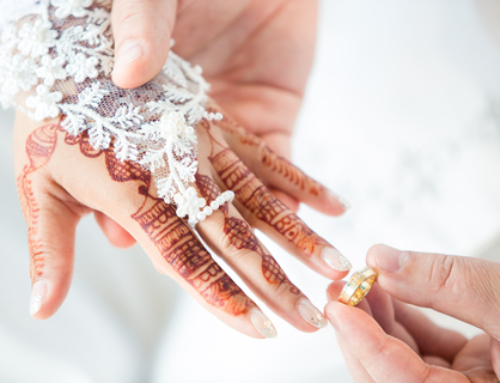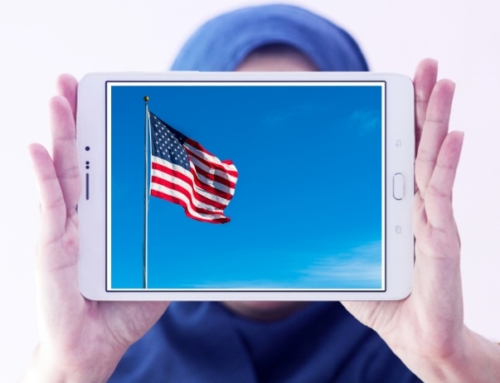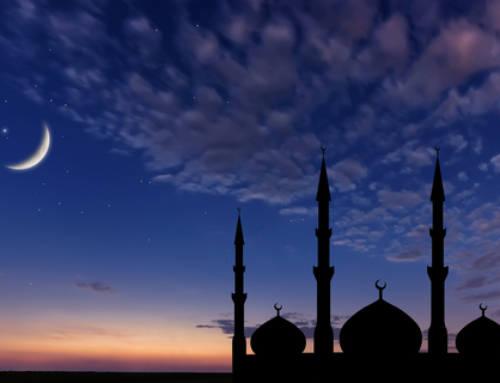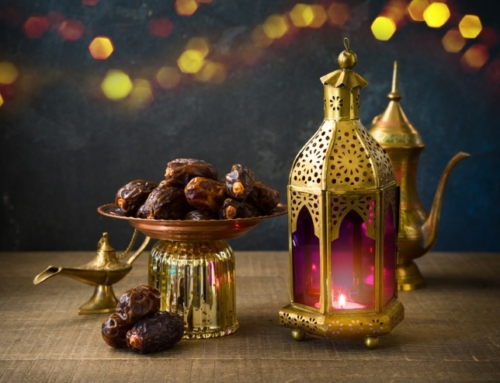By Laura El Alam
Observing Ramadan for the first time can be a daunting experience for a new Muslim. People who have never fasted before often have valid questions. How will I be able to make it through each day without food or water? What can I do to prepare myself? How can I ensure that I make the most of the month?
If you’re new to Ramadan, here are some tips to help you make the most of Islam’s holiest month.
Body
Let’s talk about the basics first. Obviously abstaining from food and drink during daylight hours affects us physically. We will need to cope with hunger and thirst. We likely get less sleep during Ramadan, as well. For someone new to Islam, the physical demands of Ramadan might seem too taxing, but it helps to remember that Muslims worldwide have been observing the monthlong fast in a variety of climates and conditions for over 1,000 years. Far from being unhealthy, fasting has proven health benefits. If we structure our days wisely, we can ensure that our bodies have the nutrients they need to get through each day.
- Eat a healthy, balanced suhoor. It is recommended to rise before dawn and eat a meal called Suhoor. Suhoor has the potential to make fasting easier, so consider your menu carefully and shop in advance so that the early-morning repast is as easy and beneficial as possible. Eating a balance of proteins (like eggs, nuts, meat, cheese, yogurt), healthy grains (like oats, whole wheat bread), good fats (olive oil, avocados, high quality butter) and hydrating fruits or vegetables (watermelon, strawberries, cantaloupe, peaches, cucumbers) will help you start your day with the best possible foundation. Make sure to drink plenty of water. Avoid salty foods that will make you thirstier, as well as fatty, processed foods that provide empty calories and little nutrition.
- Rearrange your schedule, if possible. If you can orchestrate any flexibility in your day, try to do so. Especially as your body adjusts to the first week of fasting, you might feel weaker than usual. See if you can avoid strenuous tasks, or delay them until after sunset. If possible, make time for a short midday nap, as this will help you adjust to the later nights and early mornings. What if you work or go to school? Many employers and educators will try to accommodate requests based on religious obligations, so plan ahead and ask for what you need. Brainstorm solutions ahead of time so that you can offer your employer or teacher alternatives, like swapping shifts with a coworker, rescheduling certain deadlines, or adjusting your work hours.
- Know that God sees your sacrifice and rewards it. In many parts of the world that have a large Muslim population, the daily schedule is altered during Ramadan. There is an atmosphere of solidarity, celebration, and support. Not so in the West. Most of us here do not have the luxury of resting during the day and staying up all night. We do not enjoy automatic accommodations for our school or work schedules, and generally we must get on with our day-to-day responsibilities as usual. It is challenging, but we should remember that our deeds are rewarded according to their difficulty. Allah knows each person’s sacrifice and will reward us correspondingly. The more difficult the test, the greater the blessings.
Mind
- Prioritize your focus. Ramadan is the month of mercy where every single deed has the potential to earn an abundance of God’s rewards. Try not to waste a single minute on useless pursuits! Remember: in Ramadan, Muslims abstain not only from food and water, but also from inappropriate content, words, and actions. Make sure you save your focus for what matters. Replace mindless TV shows and aimless social media scrolling with beneficial content. There are innumerable lectures, articles, and videos that can help improve your outlook and enhance your Islamic understanding. While it might be tempting to stay up late, eating in excess, and idly socializing, your time is better used praying, supplicating, reflecting, and learning. And don’t forget to hydrate and get some sleep!
- Keep your eyes on the prize. Why do we even fast? When your stomach growls and your mouth feels incredibly dry, remember the purpose of Ramadan: to increase our God-consciousness. “O you who believe, fasting is prescribed for you as it was prescribed for those before you, that you may develop God-consciousness.” (Quran 2:183). The deprivations of Ramadan should bring us closer to God and make us more grateful to Him and more determined to worship Him. With our mind fixed on this goal, we can overcome the hunger pains and discomfort, knowing that there is wisdom and mercy behind all His rules.
- Don’t be too hard on yourself. It takes a long time–perhaps a lifetime– to learn to practice Islam fully. We all make mistakes. If you are trying your best and making progress, then you are on the right path. Allah sees your efforts and will reward them. He says, “I am as My servant thinks I am. I am with him when he makes mention of Me. If he makes mention of Me to himself, I make mention of him to Myself; and if he makes mention of Me in an assembly, I make mention of him in an assembly better than it. And if he draws near to Me an arm’s length, I draw near to him a cubit, and if he draws near to Me a cubit, I draw near to him a fathom. And if he comes to Me walking, I go to him at speed” (Bukhari).
Soul
- Honor your soul’s purpose. Ramadan is a wonderful opportunity to re-start, refresh, and realign so that our souls can achieve their true purpose. If we have not been practicing sincerely or properly, Ramadan is a wonderful opportunity for “tawba,” or repentance. The Prophet Muhammad, peace be upon him, said, “Whoever spends the nights of Ramadan in prayer out of faith and in the hope of reward, he will be forgiven his previous sins.”
- Boot camp for the soul. The holiest month is a reminder for all of us that this worldly life and all of its distractions and desires are temporary and illusory. We tend to get caught up in the pursuit of money, success, enjoyment, and others’ esteem, but our whole purpose is actually to worship and obey God and return to Him in Paradise. Ramadan is a reminder that, in order to honor our soul’s purpose, we need to live a life of self-discipline and God-consciousness. It shows us that we can control ourselves when temptation arises. It’s like a boot camp for our soul, preparing us for the tests we will encounter and showing us that we are indeed capable of self-control.
- Set your intention. More than any other month, Ramadan has the potential to wipe away our sins, connect us to our Creator, and earn a multitude of God’s blessings. Every person, no matter their level of knowledge, can strive and succeed in Ramadan. For someone who doesn’t know Arabic, the effort to memorize and understand even one chapter of the Quran will be rewarded. For the person who doesn’t know all the components of prayer, their diligence to learn properly will earn them infinite blessings. For the convert who is struggling with their new Islamic identity, or facing disapproval from family or friends, their steadfastness in the face of opposition is seen and acknowledged by God, the All-Knowing and Most Appreciative. Whatever you do, do it for God, and it has the potential to be immensely blessed.
- Seize the Night. Laylatul Qadr occurs sometime during the last 10 days of Ramadan. This one amazing night is better than 1,000 months. Make sure you take advantage of this unequaled gift from God. Exert your very best efforts during the last 10 nights of Ramadan. Increase your supplications (dua), nightly recommended prayers (taraweeh), and remembrance of God (dhikr). Ask Allah for whatever you need, remembering He has no limits, and his generosity is boundless. Ask Him knowing that His response is based on His greatness, kindness, and immeasurable love, not on whether we think we deserve it or not.
- Connect with your brothers and sisters. Ramadan is even better when celebrated together as a community of believers. Attend nightly prayers in the masjid whenever possible. Praying shoulder-to-shoulder with other Muslims is a beautiful experience. Break the fast with others as often as you can, either in someone’s home or at the mosque. There are more blessings when we share food with each other. If you don’t know many Muslims, attend the iftaars (meals eaten after sunset to break the fast) at your local mosque and make an effort to get to know at least one new person per visit. Soon you will have some new Muslim friends, and Ramadan will be even more special.
Raised in a Midwestern Catholic family, Laura El Alam became a Muslim in 2000. She is a prolific writer whose work has been published in various magazines. Laura is the founder of Sea Glass Writing & Editing www.seaglasswritingandediting.com and runs the Facebook page The Common Sense Convert which aims to provide a beneficial online forum for Muslim women.








